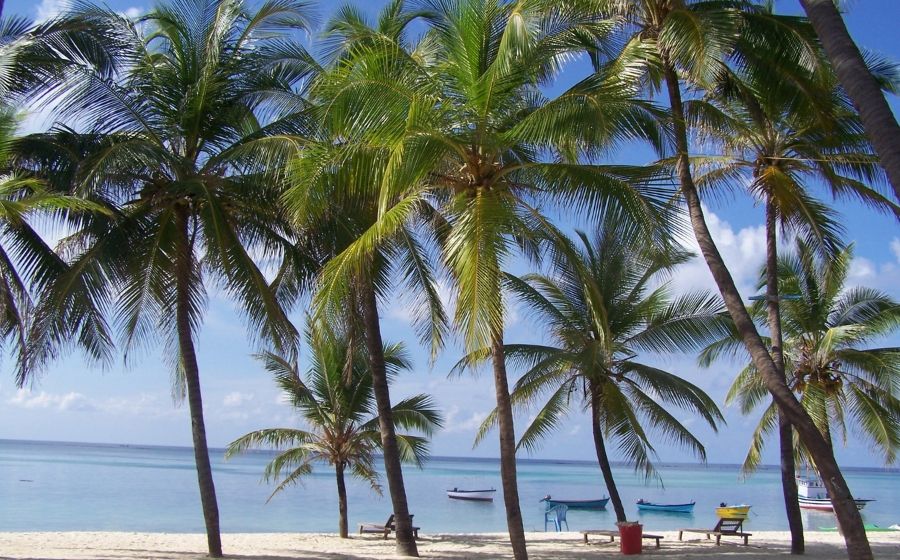
Norwegian knowhow to help Puducherry, Lakshadweep's marine development
Even amid growing concerns over the impact of global warming and climate change on coastal areas, Puducherry and Lakshadweep have been chosen as the first locations for sustainable development of ocean resources through an India-Norway collaboration

Puducherry and Lakshadweep have been chosen as the first locations for sustainable development of ocean resources through an India-Norway collaboration.
The aim of these pilot projects is to develop tourism, energy, transportation, fisheries and aquaculture without degradation of marine environment in these locations. While India has a long coastline stretching across various states, including Tamil Nadu, West Bengal, Kerala, Andhra Pradesh and Gujarat, Norway has expertise in marine spatial planning for development that does not hamper preservation of the environment.
The Ministry of Earth Sciences said on Wednesday (March 3) that India and Norway have chalked out a plan for jointly working in the area of marine spatial planning in the oceanic space for the next five years.
The first meeting between representatives from both the countries took place recently, through video conferencing, and a plan to ensure human activities at sea take place in an efficient, safe and sustainable manner has been finalised, according to a statement issued by the ministry.
Norway’s Ambassador in India, Hans Jacob Frydenlund, hailed the “good discussions” and stressed that “caring for ocean’s health” was in focus along with development of ocean industries. “Together we will succeed in both,” he tweeted. The envoy co-chaired the meeting along with Dr M Rajeevan Nair, secretary, Ministry of Earth Sciences.
Also read: Heat to take ‘wind’ out of coastal India; huge job loss anticipated
Frydenlund and Dr Nair head the steering committee formed by the two countries for discussions on joint strategies for sustainable development of ocean resources. The pilot projects at Puducherry and Lakshadweep are a part of the Indo-Norway Integrated Ocean Initiative under the memorandum of understanding signed between the two countries in 2019.
India and Norway have decided to extend support for sustainable ocean resources utilisation to advance economic and social development in coastal areas, the statement from the ministry said.
The initiative known as Marine Spatial Planning (MSP) will be implemented by the ministry through the National Centre for Coastal Research (NCCR) for India. In its primary phase, NCCR will develop a marine spatial planning framework for Puducherry and Lakshadweep.
These sites have been chosen for the pilot project in view of their setups with unique opportunities for multiple sectors such as industries, fisheries, and tourism to flourish in an eco-friendly manner. Globally, MSP is identified as a tool for sustainable and integrated ocean management that could contribute significantly to the economy and also generate employment.
Also read: Biden puts US back into fight to slow global warming
India’s initial investments for undertaking the studies and planning are estimated to be around ₹8-₹10 crore per annum. In future, marine spatial planning framework of these two environmentally critical areas can be replicated to other coastal regions of the country.
The World Bank and the United Nations Environment Programme have expressed interest in supporting India in conducting MSP, which is seen as a key societal-beneficial initiative for India’s coastal regions.
On its part, Norway has nominated the Norwegian Environment Agency to provide technical assistance to India in this critical area. NCCR had earlier developed successful coastal management plans for Chennai, Goa and the Gulf of Kutch, the ministry said. Now the MSP initiative will aid development of multiple economic sectors and stakeholders in a greater number of coastal areas of the country.
The first project steering committee meeting was also attended by representatives from several stakeholder ministries such as the Ministry of Environment, Forests, and Climate Change; Ministry of External Affairs; Ministry of Shipping; Ministry of Trade & Industry; Ministry of Fisheries, Animal Husbandry and Dairying; Ministry of Tourism; and the governments of Tamil Nadu and Lakshadweep. The central government’s vision of a ‘New India by 2030’ highlights blue economy as one of the ten core dimensions of growth.


